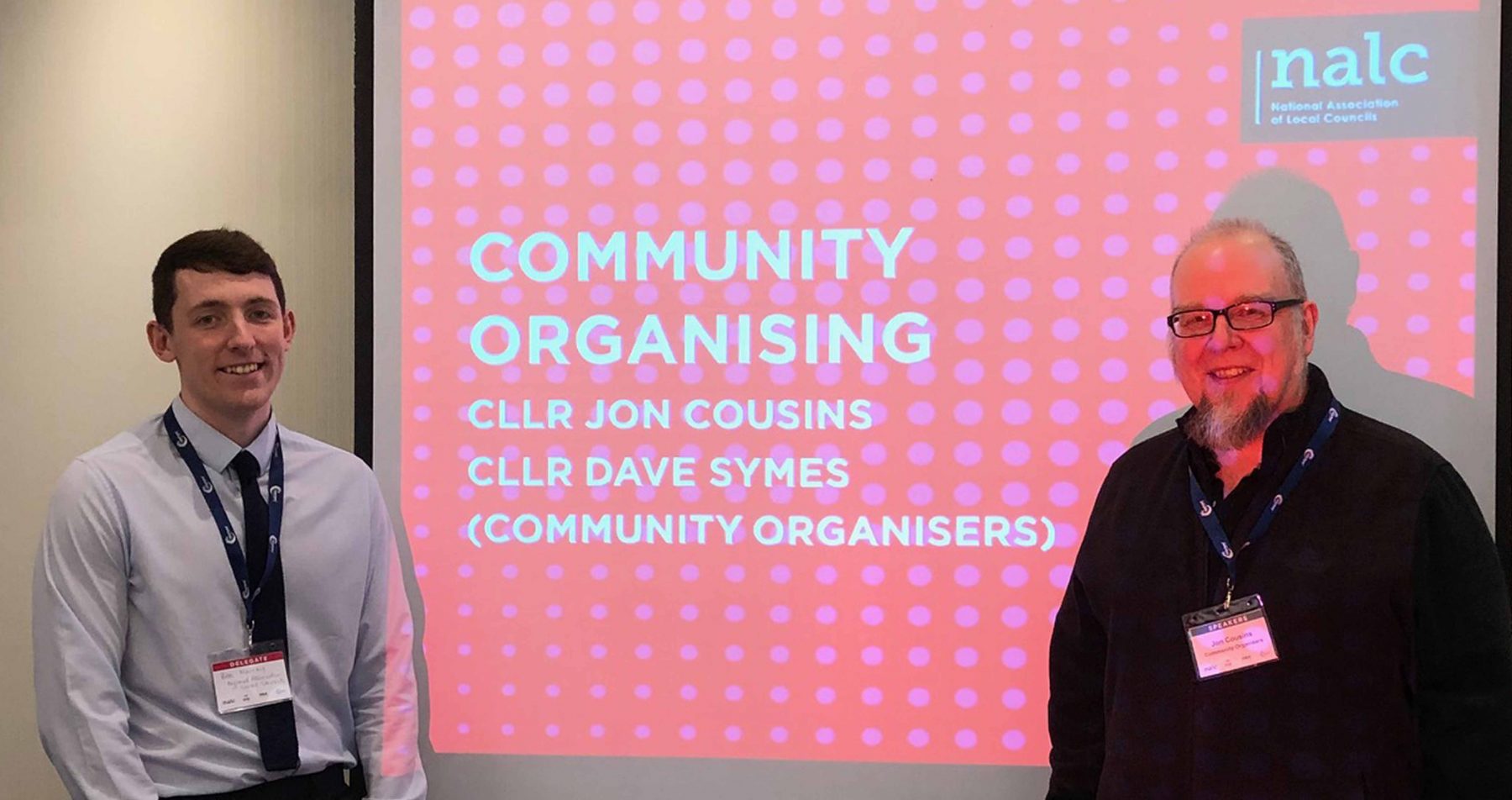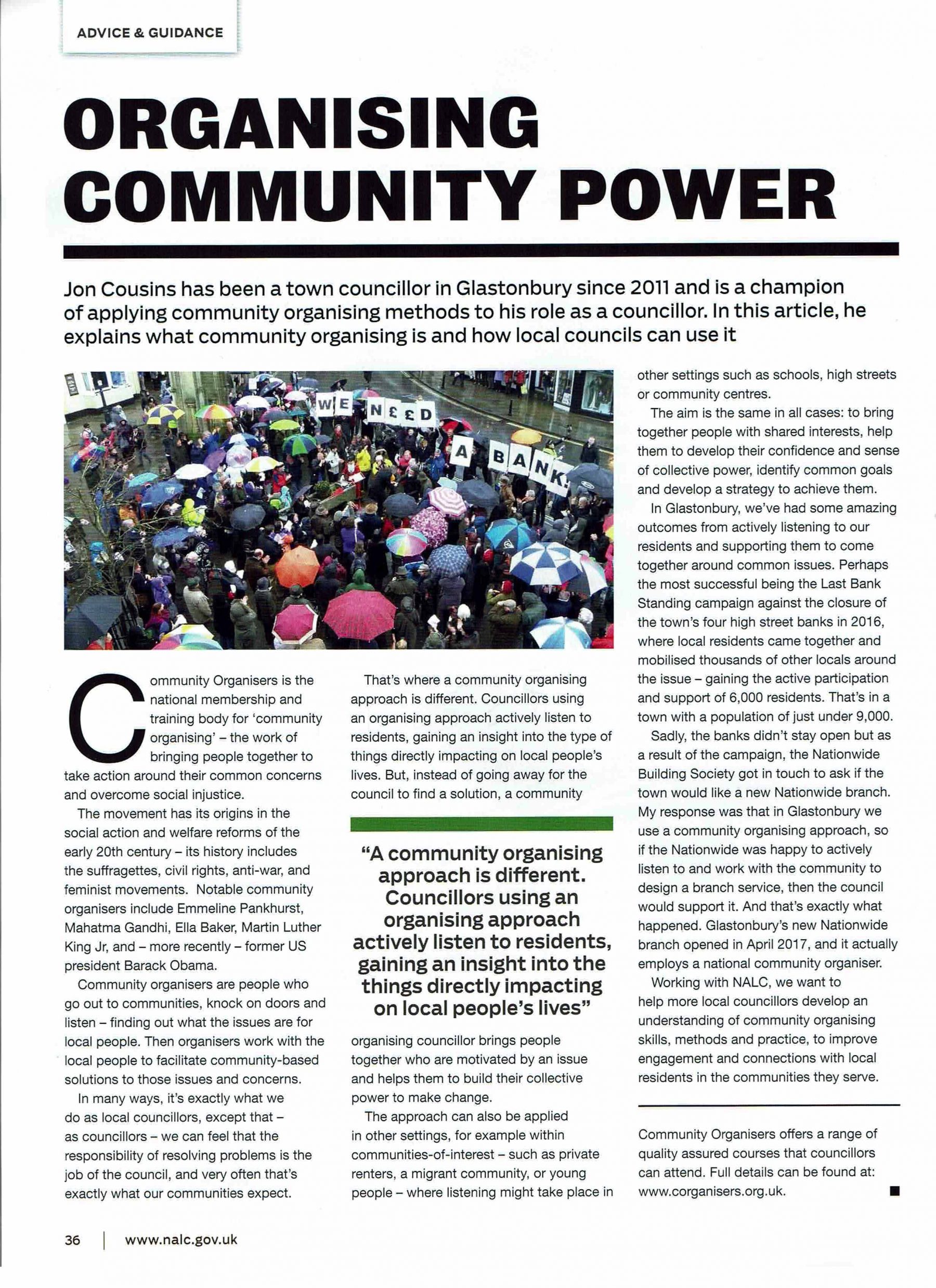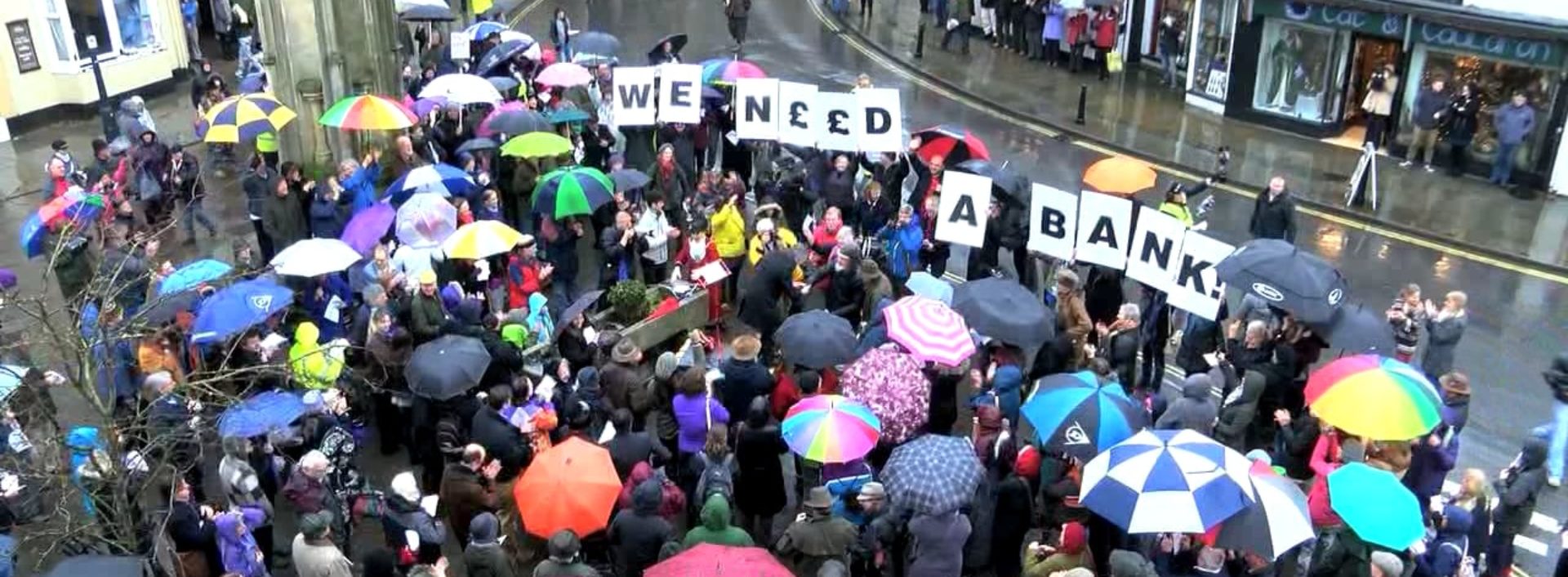Community Organisers is the national membership and training body for ‘community organising’ – the work of bringing people together to take action around their common concerns and overcome social injustice.
The movement has its origins in the social action and welfare reforms of the early 20th Century – its history includes the suffragettes, civil rights, anti-war, and feminist movements. Notable community organisers include Emmeline Pankhurst, Mahatma Gandhi, Ella Baker, Martin Luther King Jr., and – more recently – Barrack Obama.

Jon Cousins (right) with NALC’s Ben Murray – delivering a presentation on Community Organising at the NALC Spring Conference 2019.
Community organisers are people who go out to communities, knock on doors and listen – finding out what the issues are for local people; what their concerns might be. Then organisers work with the local people to facilitate community-based solutions to those issues and concerns.
In many ways it’s exactly what we do as parish and town councillors, except that – as councillors – we can feel that the responsibility of resolving problems is the job of the council, and very often that’s exactly what our communities expect.
That’s where a community organising approach is different. Councillors using an organising approach actively listening to residents gain an insight into the type of things directly impacting on local people’s lives. But, instead of going away for the council to find a solution, a community organising councillor brings people together who are motivated by an issue and facilitates them to build their collective power to make change.
The approach can also be applied in other settings, for example within communities-of-interest – such as private renters, a migrant community, or young people – where listening might take place in other settings such as schools, high streets, or community centres.
The aim is the same in all cases: to bring together people with shared interests, help them to develop their confidence and sense of collective power, identify common goals and develop a strategy to achieve them.
In Glastonbury, we’ve had some amazing outcomes from actively listening to our residents and supporting them to come together around common issues. Perhaps the most successful being the ‘Last Bank Standing’ campaign against the closure of the town’s four high street banks in 2016, where a group of local residents came together and mobilised literally thousands of other locals around the issue; gaining the active participation and support of six thousand residents! That’s in a town with a population of just under nine thousand!
Sadly, the banks didn’t stay open in Glastonbury, but – as a result of the ‘Last Bank Standing’ campaign – the Nationwide Building Society got in touch with me to ask if Glastonbury would like a new Nationwide branch to open in the town. My response was that in Glastonbury we use a community organising approach, so if the Nationwide was happy to actively listen to the community and work with them to design a branch service, then the town council would be happy to support them. And that’s exactly what happened. Glastonbury’s new Nationwide branch opened in April 2017, and today the Nationwide actually employ a national Community Organiser!
Working in partnership with NALC, Community Organisers want to help more parish and town councillors develop an understanding of community organising skills, methods, and practice; to improve engagement and connections with local residents in the communities they serve.
Community Organisers offer a range of quality assured courses that councillors can attend – from one day introductory training through to Level 2 and 3 National Qualifications. Full details of the training can be found HERE.
Article originally published in LCR, the official magazine of the National Association of Local Councils – Spring 2019.






